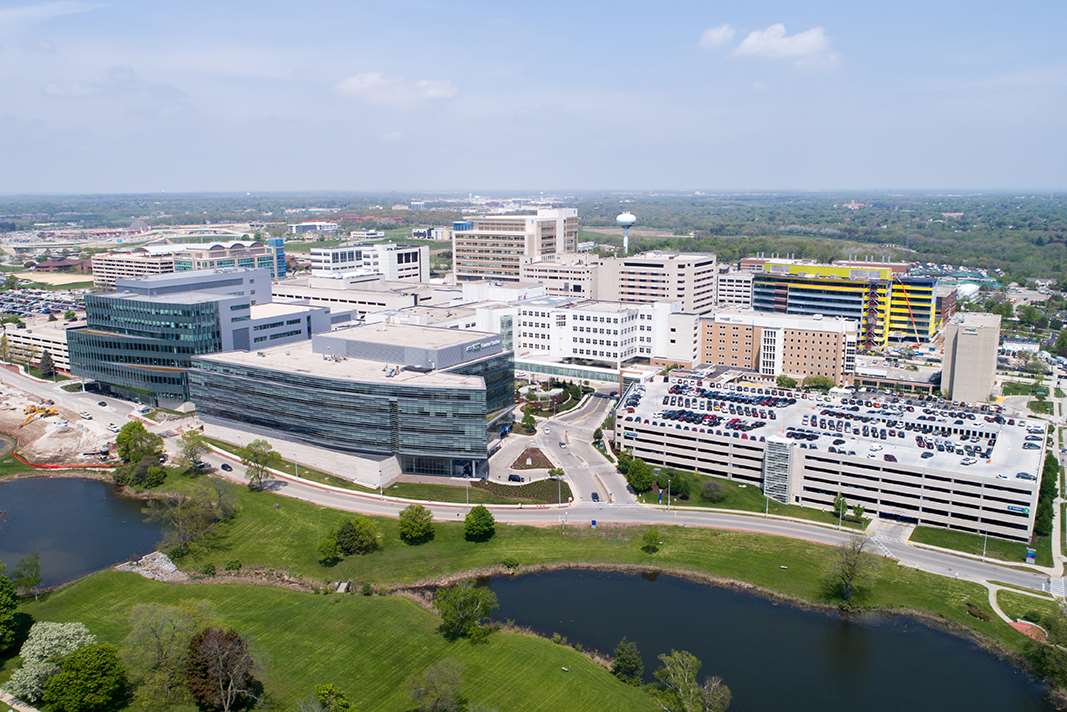Medical College of Wisconsin Physics Postdoctoral Fellowship and Certificate Programs
There are two different types of research programs available in the Department of Radiation Oncology.
- Postdoctoral Fellowship Program: The Postdoctoral Fellowship program primarily focuses on research opportunities available within the department. Postdoctoral Fellowship positions vary dependent on available research and research funding.
- Medical Physics Certificate Program: The Medical Physics Certificate Program is an internal only program available to qualified postdoc fellows wanting to transition to a medical physics career from a complementary PhD discipline. This program not only focuses on research but also on hands-on clinical QA and the opportunity to earn a CAMPEP-accredited medical physics certificate which will qualify the candidate to apply to CAMPEP accredited residency programs.
Incoming certificate program students need to have completed a PhD in medical physics, physics, or a related field at the time of enrollment. Anyone interested in applying for either program can send a copy of their CV to Jessica Kotowicz. All CVs are reviewed by Dr. Eric Paulson, our Chief of Medical Physics. Qualified applicants are then contacted for further discussion.
Medical Physics Certificate Program Statistics
| Year | Applicants in year |
Accepted in year |
Graduated in year |
Accepted to residency in year |
Employed in clinical setting in year |
Employed in research setting in year |
| *2013 | 3 | 3 | NA | |||
| 2014 | 2 | 2 | 1 | 1 | ||
| 2015 | 4 | 4 |
2 | 2 | ||
| 2016 | 1 | 1 | 2 | 1 | 1 | |
| 2017 | 4 | 4 | 4 | 3 | 1 |
|
| 2018 | 5 | 5 | 1 | 1 | ||
| 2019 | 1 | 1 | 4 | 4 | ||
| 2020 | 5 | 5 | 3 | 2 | ||
| 2021 | 3 | 3 | 2 | 2 | 1 | |
| 2022 | 2 | 2 | 3 | 2 | ||
| 2023 | 2 | 2 | 4 | 3 | ||
| 2024 | 0 | 0 | 1 | 1 | ||
| 2025 | 4 | 2 | 2 | 1 |
*Program accredited by CAMPEP December 2013
Working at the Medical College of Wisconsin
Why Work at MCW?
The Medical College of Wisconsin brings together the most inquisitive minds in science, medicine, education, and community engagement to solve the toughest challenges in health and society today. At the core of everything we do at the Medical College of Wisconsin is the pursuit of new knowledge and the power of academic medicine, where scientists, physicians and students work together with the community to ask the questions no one else is and fuel the continuous cycle of knowledge that’s shaping the future of medicine.

Why Work in Milwaukee?
Milwaukee is one of the Midwest’s best-kept secrets and a prime location for the Medical College of Wisconsin’s main campus. We are more than just cheese and brats; we are home to a thriving music, sports and arts scene, Milwaukee’s rich history comes alive at any number of local museums or theatres, including our Historic Third Ward, the architectural landmark of the Pabst Mansion and the award-winning Milwaukee Riverwalk are just a few of the many attractions our city has to offer.Living and Working in Milwaukee

